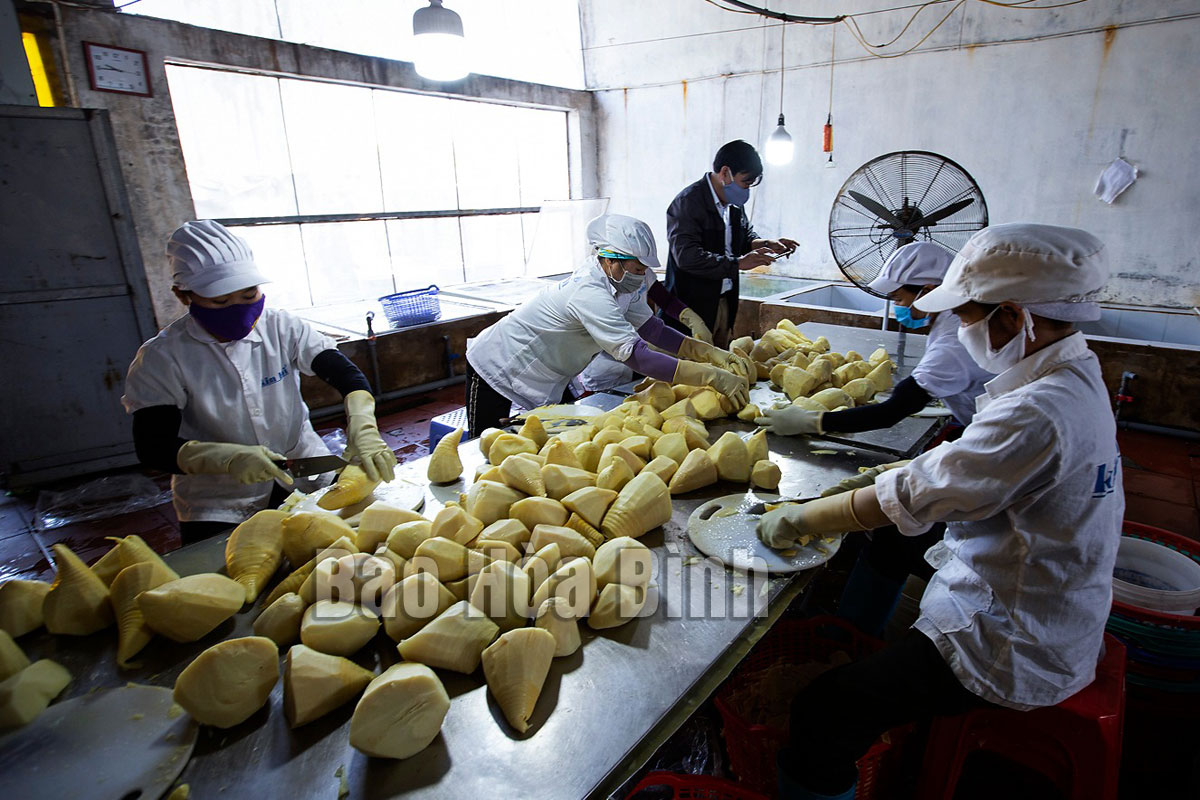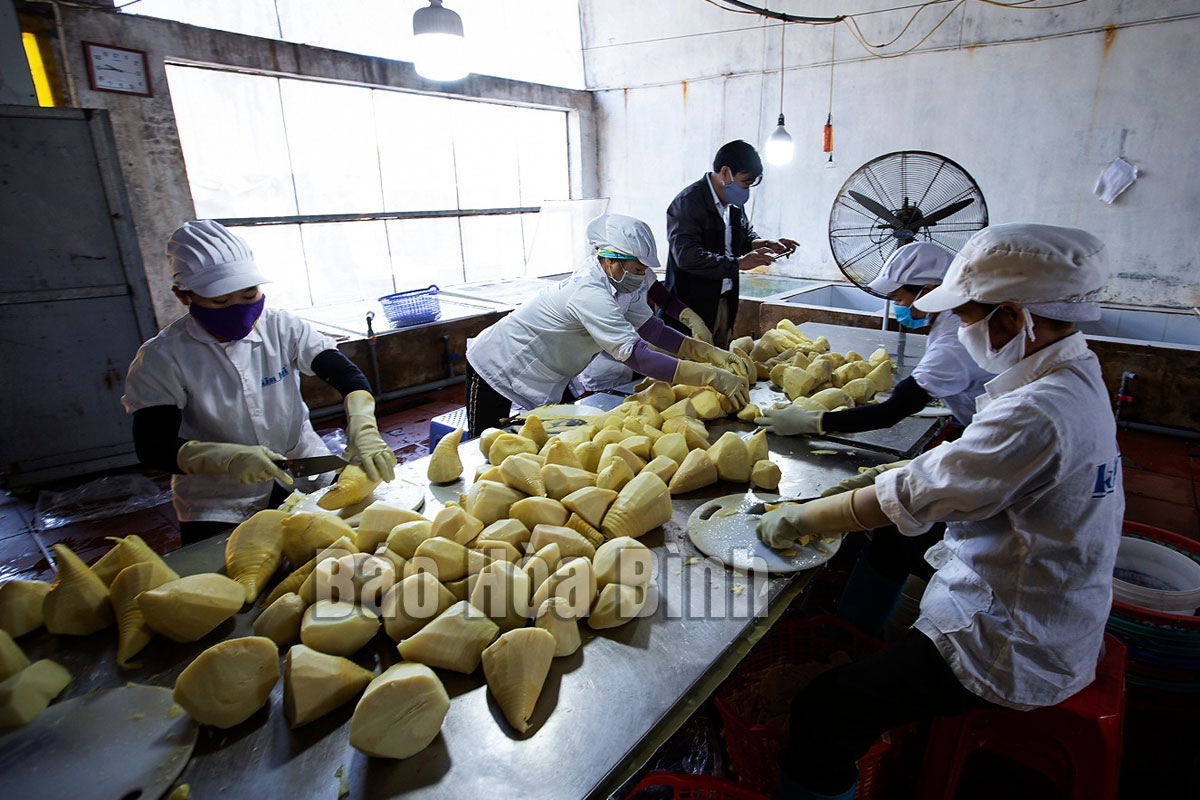
(HBO) – Lac Thuy district in the northern mountainous province of Hoa Binh boasts great potential in forestry development with advantages of land, road and waterway transportation, helping to facilitate the circulation of goods.
The annual afforestation area of the district is
from 850 to 900 hectares in the direction of intensive farming with the
combination of developing non-timber products, contributing to the
transformation of crop structure.
The project on developing bamboo shoots in the
district in the 2022 - 2025 period is expected to create jobs and improve
income for farmers while increasing production value and contributing to the
creation of a facelift for the locality’s economy.

Kim Boi joint Stock Company in Da Hang Doi town, Lac Thuy district, specialsies
in purchasing and processing bamboo shoots.
The bamboo shoot farming area in the district by the
end of 2021 was 155 hectares. In fact, the annual production of bamboo shoots
accounts for about 30% of the district’s total bamboo shoot production.
The district hasa relatively large area of
rocky forest land with many valleys and hillfoots which are suitable for bamboo
shoot development. However, the trade has not fully tapped its potential as
they are mainly grown on a small scale without proper investment and intensive
farming.
The locality has set a target to increase the area
of bamboo shoot growing to 235 hectares by 2025.
Hoang Thu Hang, Deputy Chairwoman of the district’s
People Committee, said the implementation of the project will contribute to
raising the production capacity for local farmers, creating a concentrated raw
material area while improving the value of the forest, creating jobs, raising
people's incomes for the locals, and protecting the ecological environment
while attracting businesses to expand investment in processing, product circulation
and sales of bamboo shoots.
Lac Thuy has also directed localities to study types
of soil to ensure concentrated planting areas in an attempt to facilitate the
process of management and production organisation.
The district has coordinated with enterprises in
various steps from production to harvesting, processing, preserving and
purchasing products to enhance value and build brands for bamboo products./.
According to data from the Hoa Binh Provincial Party Committee, the industrial production index for the first six months of 2025 is estimated to have increased by 20% compared to the same period last year. This marks the highest year-on-year growth rate for this period since 2020.
In the first six months of 2025, Hoa Binh province’s export turnover was estimated at 1.145 billion USD, marking an 18.11% increase compared to the same period in 2024. Import turnover was estimated at $ 804 million, a 17.15% increase, which helped the province maintain a positive trade balance.
The lives of the ethnic minority farmers in Tan Lac district have gradually improved thanks to the new directions in agricultural production. This is a testament to the collective strength fostered through the professional associations and groups implemented by various levels of the district’s Farmers’ Union.
With the motto the "product quality comes first,” after nearly one year of establishment and operation, Muong village’s Clean Food Agricultural and Commercial Cooperative, located in Cau Hamlet, Hung Son Commune (Kim Boi district), has launched reputable, high-quality agricultural products to the market that are well-received by consumers. The products such as Muong village’s pork sausage, salt-cured chicken, and salt-cured pork hocks have gradually carved out a place in the market and they are on the path to obtaining the OCOP certification.
In the past, the phrase "bumper harvest, rock-bottom prices" was a familiar refrain for Vietnamese farmers engaged in fragmented, small-scale agriculture. But today, a new spirit is emerging across rural areas of Hoa Binh province - one of collaboration, organisation, and collective economic models that provide a stable foundation for production.
Maintaining growing area codes and packing facility codes in accordance with regulations is a mandatory requirement for agricultural products to be eligible for export. Recently, the Department of Agriculture and Environment of Hoa Binh province has intensified technical supervision of designated farming areas and packing facilities to safeguard the "green passport" that enables its products to access international markets.



